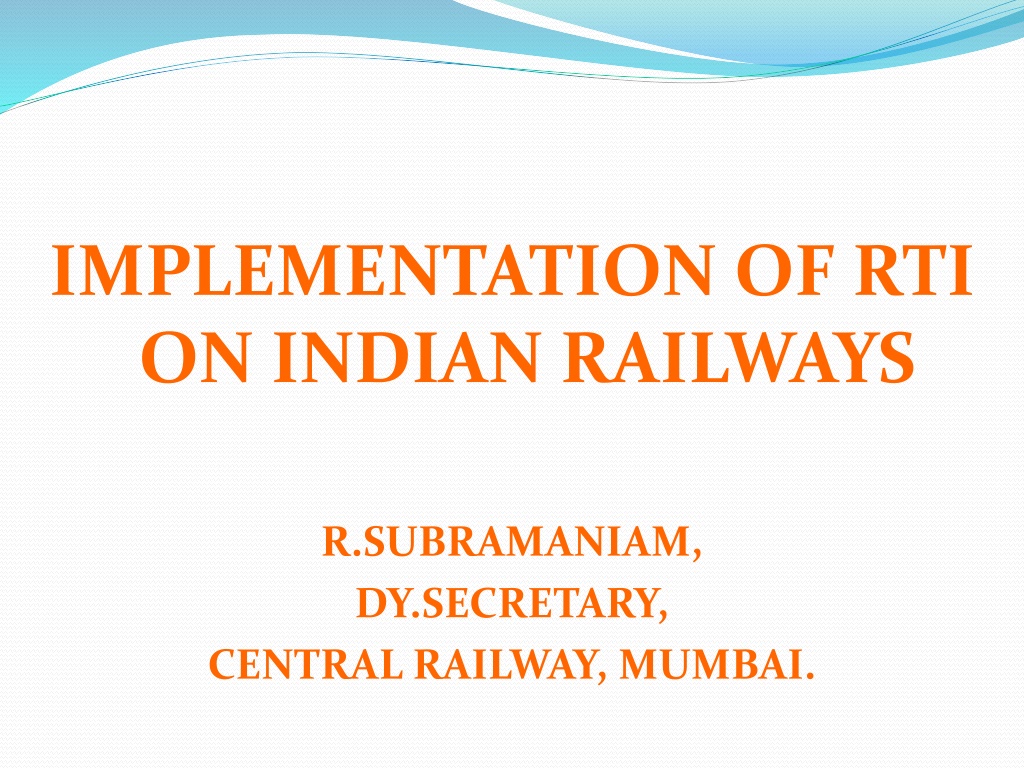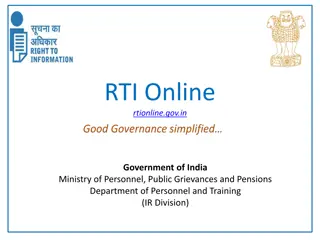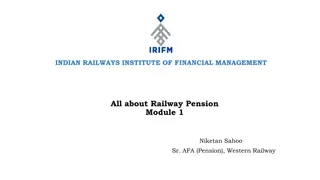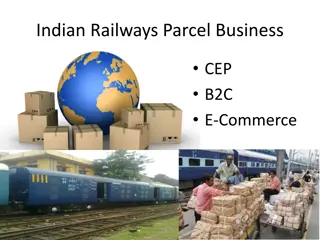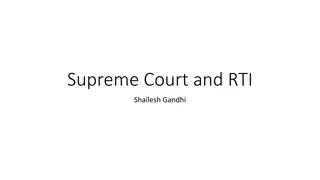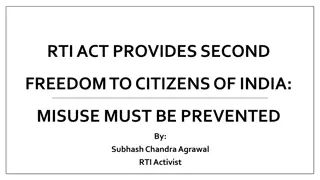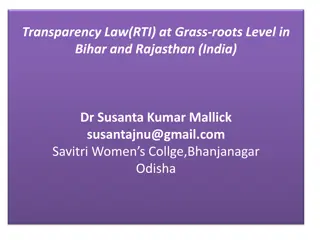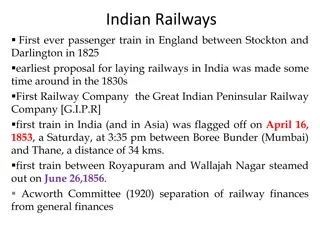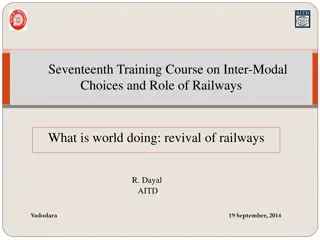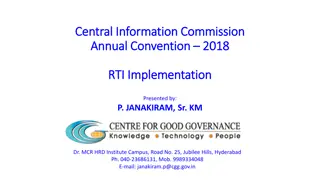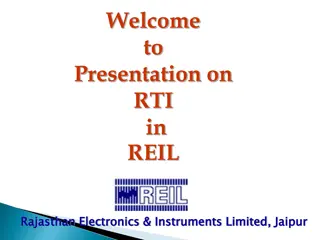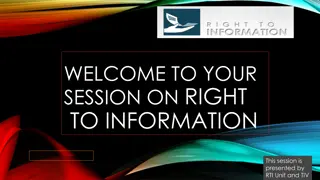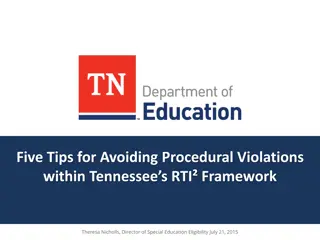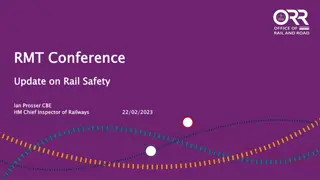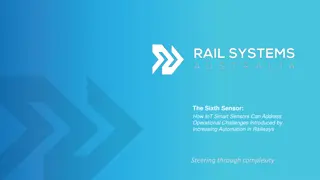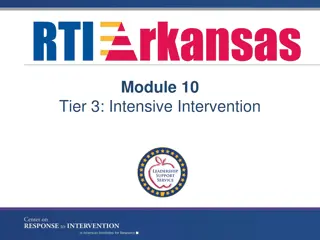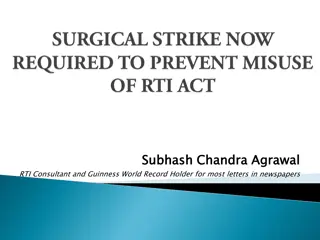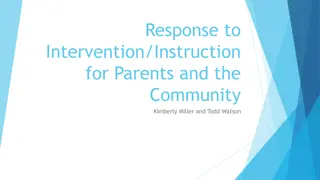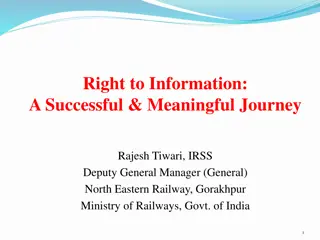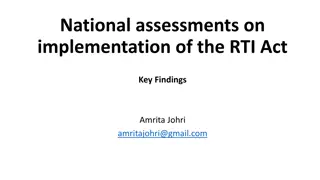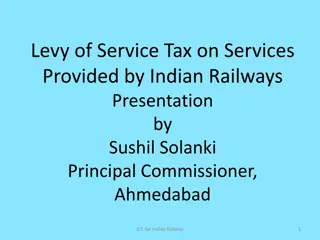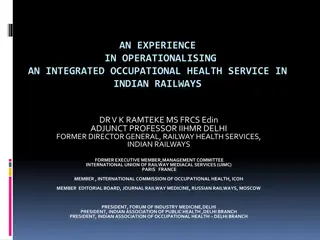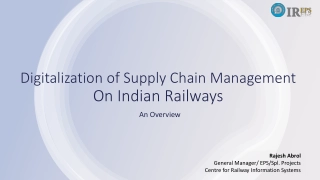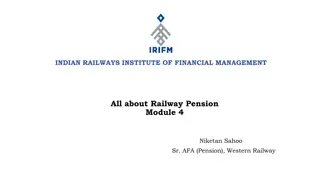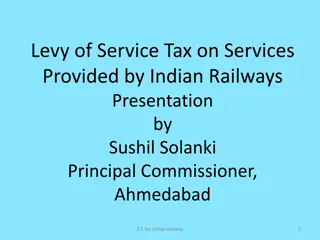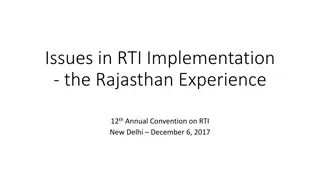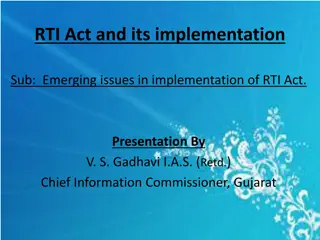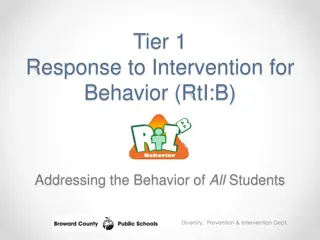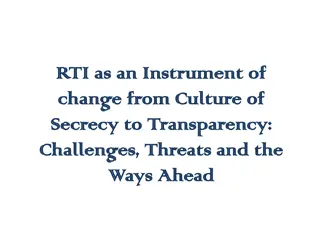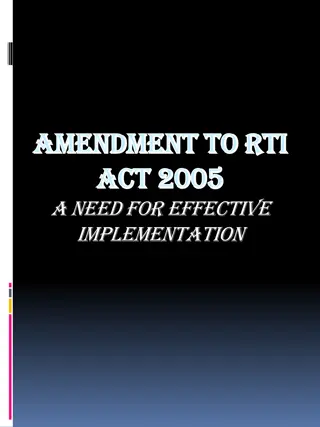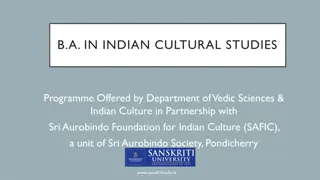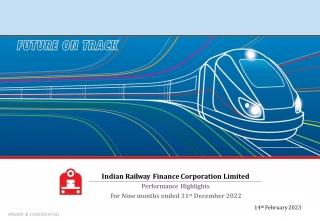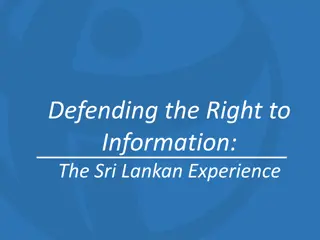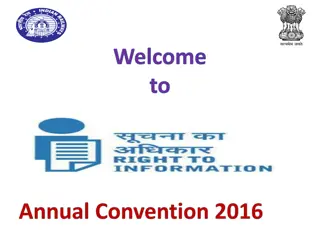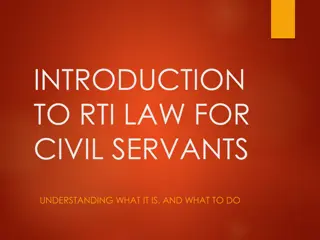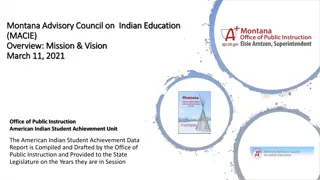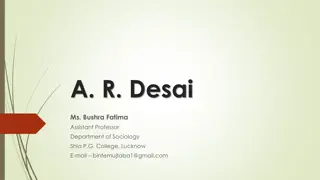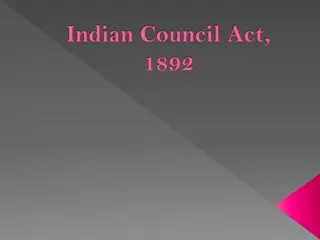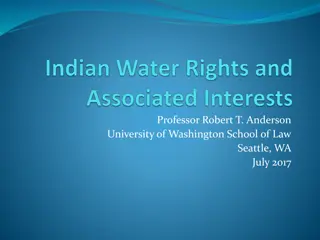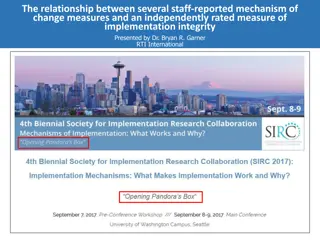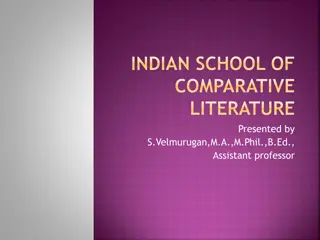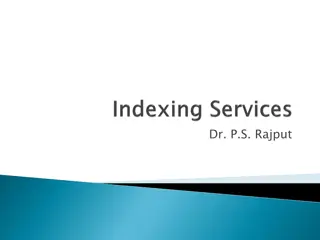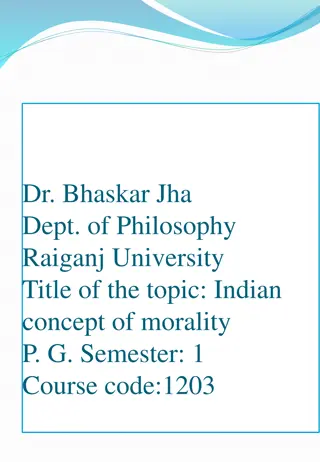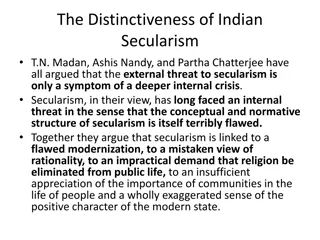Implementation of RTI on Indian Railways Research Findings
Research led by R. Subramaniam, Dy. Secretary at Central Railway, Mumbai, studied the implementation of RTI on Indian Railways. The study involved senior Railway Officers from various departments, using a questionnaire as a data collection method. Findings include insights on the impact of RTI on work efficiency and the stance of the First Appellate Authority towards RTI cases.
Download Presentation

Please find below an Image/Link to download the presentation.
The content on the website is provided AS IS for your information and personal use only. It may not be sold, licensed, or shared on other websites without obtaining consent from the author. Download presentation by click this link. If you encounter any issues during the download, it is possible that the publisher has removed the file from their server.
E N D
Presentation Transcript
IMPLEMENTATION OF RTI ON INDIAN RAILWAYS R.SUBRAMANIAM, DY.SECRETARY, CENTRAL RAILWAY, MUMBAI.
METHODOLOGY A research was conducted involving around 100 Railway Officers. The questionnaire comprised of 25 questions covering differentaspects of the RTI Act. Respondents were all senior Railway Officers working in different departments of the Indian Railways representing various Zonal Railways, Production Units and Divisions: Questionnaire method was collection of data. followed for the
19. The First Appellate Authority attended the hearing with you in the Year 2014 in : 2 8 20 (a) Up to 5 Nos. of the cases, (b) Up to 10 Nos. of Cases, (c) Never summoned by the CIC. (d) Do not remember. 67
21. Does your work suffer in terms of delay due to additional workload due to RTI Act? 9 (a) Yes, (b) No, 20 (c) Can t Say Do not know/ 71
Suggestions Disclosing of 3rdParty information to be restricted. The applicant should give reasons that obtaining information will be useful in public interest. Application Fees should be enhanced to Rs.100/- minimum, to minimize queries which are irrelevant. Cost should be affordable to the poorest of poor. It can sometimes be linked to the annual income of citizens seeking such information. Record keeping to be computerized to the maximum extent.
Suggestions More and more information should be put up in public domain. More education and training for all officers and staff. Separate cells should be made in all departments to facilitate normal works. Time limit should be increased as due to shortage of staff or misplacement of old records or non-availability of records. It is very difficult to provide the information within 30 days. sometimes due to
Suggestions The questions asked by the person (if found) with malafide intentions should be punished and hefty fine levied. Information giving brought under the ambit of service tax, which would increase the cost of seeking information. There should be some mechanism to deny information sought reasons and for officials. activity should be for mischievous concerned harassing
Suggestions Credential / background of the person seeking information should be assessed first and its purpose should also be clearly spelt out. There should be some limitation on the quantum of information sought. Some realistic cap is needed for the total amount of information that needs to be given. RTI applications should be filtered by an RTI Cell with regard to theirrelevance. The information which is not in public interest should be denied, if required, by passing an amendment. Use of Information Technology and office automation in Government working be encouraged.
Conclusions It can be concluded that the PIOs nominated by the Department are facilitating the furnishing of the information under the RTI Act, even though there is a strong case for enhancing the fee from the present of Rs.10/- This research categorically reveals that the RTI Act has resulted in reduction in corruption, greater transparency in bureaucracy making had improved. Several respondents had also opined that the record keeping in their offices have drastically improved. and the decision
Conclusions Another important and an interesting outcome of this research reveals that the CIC and the ICs are discharging their duties diligently. Almost 70% of the respondents interviewed were categorical in stating that they were neither summoned by the CIC/IC nor any pecuniary penalty was levied upon them which is a very encouraging response, which can only strengthen the perception of the citizens regarding judicious approach of the CIC.
Conclusions The only outcome of this research which may be a cause of concern was that almost 71% of the respondents interviewed suffered in terms of delay due to additional workload due to RTI Act. This response will need to be addressed by the Organization so that the negativity attached with this aspect can be totally eliminated. This can be done by having dedicated personnel who exclusively look after the RTI and related work and such dedicated personnel must be divested of any other work that may be assigned to them. felt that their work
JUDICIAL DECISIONS Date of Name of S.No Case No. Subject Judgment 04.12.14 Court Delhi High W.P.(C) 6634/2011 & CM To provide information regarding pending cases 1 No.13398/2011 W.P. No. 26781 of 2013 & Court Madras High which had been heard and orders reserved. For disclosing reasons while seeking information. 17.09.14 2 M.P.No.1 of 2013 No.CIC/AD/A/2013/001326 Court CIC, New 23.06.14 Repeated RTI applications be rejected. 3 Delhi High Court of W .P.(C) 3406/2012 19.02.14 Third party (personal) information can be furnished 4 Delhi only after following due procedures laid down. No.CIC/SM/C/2011/001386 03.06.13 CIC, New Directions to Major Political parties to nominate 5 & Delhi Public Authority bring them within the ambit of RTI No.CIC/SM/C/2011/000838 Civil Appeal No.9052 of 13.12.12 Supreme Information affecting the safety of an individual can 6 2012 (Arising out of SLP(C) Court of India be denied as there is no public interest involved. No.20217 of 2011) SLP (Civil) No. 27734 of 3.10.12 Supreme Personal Information can be denied. 7 2012 W.P. No.(C) 288/2009 Court of India Delhi High 02.09.09 Judges assets case 8 Court
THANKS ! for the opportunity.
